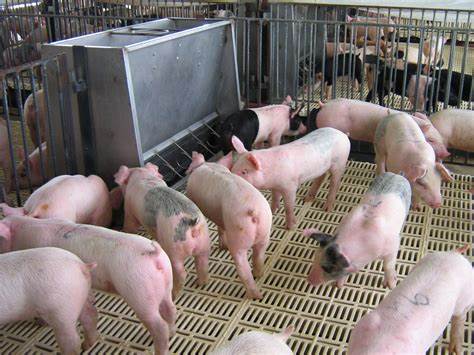In swine farming, feeding equipment plays a crucial role in animal health, growth rates, and overall farm efficiency. Properly designed feeders minimize feed wastage, reduce labor costs, and improve feed conversion ratios, which are critical factors in enhancing profitability. When pigs have access to high-quality feeding systems, they exhibit better eating behaviors, leading to optimal growth and weight gain. Traditional feeders often result in uneven feed distribution and can carry the risk of contamination, negatively impacting pig health and growth performance. Conversely, transitioning to a new generation of feeding equipment, such as automatic or precision feeders, can greatly improve feeding efficiency. These advanced systems ensure that each pig receives the appropriate amount of feed at the right times, optimizing intake and reducing competition among animals. Additionally, the precision offered by modern feeders leads to more accurate tracking of feed consumption, thereby allowing farmers to adjust rations and feeding strategies effectively. Furthermore, the integration of technological features such as remote monitoring and data analytics empowers farmers to make informed decisions about feeding practices and overall farm management. By reducing waste and improving feed utilization, producers can see significant improvements in growth rates and feed efficiency, ultimately boosting profitability and enhancing sustainability in swine farming. Switching to these innovative feeding solutions not only drives operational efficiency but also positions farms to better meet the growing demands of the market while maintaining animal welfare standards.
Mitigating Mycotoxin Risks in Poultry: The Vital Role of Effective Additives for Health and Productivity
- Details
- Administrator
- 2024-11-10

The impact of mycotoxins on poultry health and productivity is clear, making mycotoxin management an essential aspect of poultry farming. Given the wide range of potential issues caused by
...
